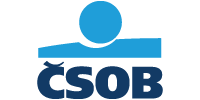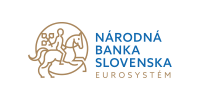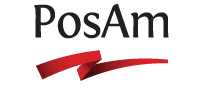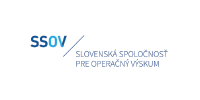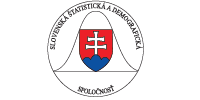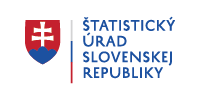BICISEDU Project
Basic Information
Partners: University of Economics in Bratislava – Faculty of Economic Informatics – responsible person Dr. Miroslav Hudec, Bifröst University Iceland – responsible person Dr. Hanna Kristin Skaftadottir.
Duration: The official start is September 1, 2023, and the end is August 31, 2024.
Back to TopProject Description
The project's primary purpose is cooperation in the emerging fields of business intelligence and explainable artificial intelligence. Its positive and negative impacts should be evaluated and documented for the benefit of education and society.
This goal will be realized through short research visits, improved study materials, publicity activities, and preparation of topics for master theses at the University of Economics in Bratislava and Bifrost University.
Back to TopProject Objectives
The project's primary purpose is to improve the already established bilateral cooperation to a higher level in the emerging fields of teaching and research in business intelligence and explainable artificial intelligence, as well as the impact of these two concepts on society and education.
One of the objectives is also the participation of Ph.D. students and young researchers. On the Slovak side, we included mainly women, as there is a need for more women in (explainable) artificial intelligence and business intelligence.
Back to TopTasks and their Realization
Workshops and Conferences
The first meeting was held in week 20.11.-24.11. 2023 in Bratislava on the premises of the Faculty of Economic Informatics.
This week, Assistant Professor Jon Fryer Jonsson gave a talk at the TIESS conference co-organized by the University of Economics in Bratislava, Faculty of Economic Informatics, and Óbuda University Budapest. More information https://tiees.webconf.online/index.php/tiees-2023
One day was a conference: Methods and Technologies for Knowledge Extraction from Data for Economic Practice in Bratislava, where project team members gave their respective talks. More information https://fhi.euba.sk/www_write/files/aktuality/2023/pozv%C3%A1nka_workshop-sshi_eng.pdf
During the project workshop, we discussed our tasks and created a basis for outputs (e.g., agreeing on the final structure of the survey and improving the study materials).
The second meeting was held in week 22.4 -26.4.2024 in Reykjavik on the premises of the Bifröst University.
The first topic was reflecting on the improved study materials in the Business intelligence course (held in the autumn semester). The next topic was evaluating the ongoing improvements of study materials in the remaining courses in the spring semester.
We also discussed the initial findings from our survey, the lessons learned, surprising answers, and how to summarize all relevant findings into the journal article.
Meanwhile, our proposal for a small six-month grant in the mentioned COST initiative related to the synergy of statistical and XAI approaches in explaining data for practice in p2p lending has been accepted (see Publicity). Thus, we discussed how to proceed with the work.
Finally, we discussed the accepted articles for our special session at the ICEIS conference and chairing them by our Fenech colleague (see Publicity).
The third meeting was held in week 10.6.-14.6. 2024 in Bratislava on the premises of the Faculty of Economic Informatics.
Firstly, we focused on evaluating survey results, sharing new ideas and topics in BI and AI, working on journal article, and discussing how students reacted to improvements in our courses.
We also evaluated the ongoing work in our small grant in the frame of the mentioned COST initiative.
Our special guest was Prof. Francisco Javier Fernandez from the Public University of Navarra, Spain. This initiative supported an expert from the University of Fribourg, Prof. Edy Portmann. Four researchers from the University of Belgrade (partners in the bilateral Serbian-Slovak project supported by our respective national research agencies) also participated.
Thus, the next session was related to cooperation with our Serbian partners, namely how to invite them into the survey, i.e., to launch it at their university to have results from three countries, which is more relevant for a top-tiered journal.
Finally, we discussed ethnicity, sustainability, and other vital issues in XAI with all participants, which education should address.
The fourth meeting was held in weeks 26.8-30.8, 2024, in Reykjavik, on the premises of Bifröst University headquarters.
We finalized the journal article and sent it to the review process into the ranked Q2 in WoS journal.
We also evaluated the work in our small grant, awarded in the framework of the mentioned COST initiative, and worked on finalizing it.
We held a symposium in Reykjavík, a joint venture of COST Fintech/AI and BISICEDU. It was a two-day symposium that offered insight into fintech/AI, and we had multiple presentations and participants.
All participants agreed that the initiative was beneficial for both sides. In addition, our publicity on the TIESS conference, cooperation between Swiss and Spanish scientists, invitation of partners from Serbia, and merging the workshop with the COST Action CA19130 meeting enhanced the visibility of this initiative.
Back to TopSurvey
The survey was devoted to students’ perceptions of AI in education and in supporting life at the universities. For instance, in which fields they prefer AI, in which they are afraid of AI, whether they prefer mandatory lectures and seminars of AI, and the like.
The survey was launched at the Faculty of Economic Informatics and Bifröst University. The main findings and recommendations were summarized. Meanwhile, our Serbian partner from another project (see part Publicity) joined this task. Partner launched the survey at the Faculty of Organizational Sciences, University of Belgrade. Consequently, we examined results in three countries and prepared a journal manuscript.
Study Material Improvements
Our project online meetings and workshops launched ideas for improving our study materials.
Autumn semester
Business Intelligence
We improved the part related to the visualization of BI reporting by XAI and the life cycles of BI solutions. Materials are in Moodle.
https://moodle.euba.sk/pluginfile.php/23783/mod_resource/content/3/P8_vizualizaciaNew.pdf
https://moodle.euba.sk/pluginfile.php/23957/mod_resource/content/4/P11_zivotny%20cyklus.pdf
Spring semester
Knowledge Management Technologies
We improved part related to the data visualization and summarization by short quantified sentences of natural language for Erasmus students
https://moodle.euba.sk/course/view.php?id=497
Knowledge discovery in data by computational intelligence
We improved part related to cooperation of statistical figures and fuzzy logic in explaining statistical figures linguistically, i.e., why there is a small or high difference in correlation between attributes.
New Topics for Master Theses
Topics related to the application of business intelligence and explainable artificial intelligence are added to our Academic Information System:
The role of cognitive computational intelligence in the business environment
Importance of ontologies in contemporary artificial intelligence
Searching the solution for the Sudoku game by the CSP methods
Mixed logic aggregation functions for data evaluation in considering semantic uncertainty
Lectures to Students
Within this project, several lectures were given to students:
For students at the Faculty of Economic Informatics:
Assistant Professor, Hanna Kristin Skaftadóttir - Ethics and safety of AI April 10, 2014
Assistant Professor, Hanna Kristin Skaftadóttir - Synthesia.io: Introduction to a ground-breaking platform April 17, 2024
For students at the Bifrost University
Eva Rakovská, Ph.D. Cognitive science and Artificial Intelligence application in business – agreed for the future.
Journal Article
The manuscript related to AI in education at our respective universities has been sent to the review process in journal ranked as Q2 in WoS.
Publicity
Assistant Professor Hanna Kristin Skaftadóttir attended the COST Action CA19130 FinAI meeting in Istanbul May 20th, where she presented our initiative.
Assistant Professor Hanna Kristin Skaftadóttir organized project Workshop together with the COST Action CA19130 FinAI meeting in Reykjavik in August 2024.
Dr. Miroslav Hudec organized a workshop on this initiative linked with the seminar related to the international project SK-SRB-23-0007 Perspectives, issues, and synergy of Interpolative Boolean Algebra and Ordinal sums of conjunctive and disjunctive functions in classification granted by the Slovak Research and Development Agency, also related to computational intelligence, from mathematical perspective and applications.
Further Achievements beyond the Planned Ones
The principal investigators of both universities initiated the special session related to XAI for smart communities considering ethnicity (Soft Computing in Ethicity and Smart Cities Services—SEC-SCIS 2024) at the ICEIS 2024 conference indexed in WoS. Miroslav Hudec was the session co-chair, and Hanna Kristin Skaftadóttir was a programme committee member.
With the significant support of Hanna Kristin Skaftadóttir, Miroslav Hudec has applied as a principal investigator for the VMG grant in the frame of COST Action CA19130: E-COST-GRANT-CA19130-453dc334 (1.3.2024 - 31.8.2024) The synergy of statistical approaches and fuzzy logic approaches in mining patterns from p2p loan data. The other participants were from six countries (Hungary, France, Italy, Serbia, Turkey and Poland). Results were finished on time and sent to the committee members for evaluation.
The dataset for the article Reducing Risk by Enhancing Data Quality through Machine Learning Models in Non-Life Insurance is the property of the insurance company, but can be provided upon request. Contact Peter Schmidt PhD.
Big Data
Schmidt, P.: Úvod do big data - 1. časť
Business Intellingece
Kimball Raplh: The Data Warehouse Toolkit, John Wiley & Sons, 2002
Kimball Raplh: The Data Warehouse Lifecycle Toolkit, John Wiley & Sons, 1998
Berson A. , Smith S.J. , McGraw Hill : Data Warehousing, Data Mining and OLAP , 1997
Lacko, L.: Business Intelligence v SQL Serveru 2008, Reportovací, analytické a další dátové služby, Computer Press, 2009
Databázové systémy
Základná študijná literatúra:
ŠKURLA, P: Databázové spracovanie. In: PÓLYA, A. a kolektív: Informatika. Bratislava: Vydavateľstvo EKONÓM, 2008, s. 201 - 252. ISBN 978-80-225-2453-7
DATE, C.J: An Introduction to Database Systems (8th Edition), Addison-Wesley, 2003, s. 1024, ISBN: 978-0321197849
Odporúčaná študijná literatúra:
Scheber, A. Databázové systémy. Alfa-SNTL, 1988.
Veryard, R. Information Modelling - Practical Guidance. London : Prentice-Hall, 1992.
Veryard, R. Information coordination - The management of Information Models, Systems and Organizations. London : Prentice-Hall, 1994.
TEOREY, J. - Lightstone , S.- Nadeau, T. – Jagadish, H.V: Database Modeling and Design, Fifth Edition: Logical Design, Morgan Kaufmann, 2001, s. 352, ISBN 978-0123820204
Distribuované spracovanie dát
Závodný, P. Distribuované spracovanie dát. Ekonóm 2010
Fuzzy logika pre hospodarsku informatiku:
Galindo, J. (editor) Handbook of Research on Fuzzy Information Processing in Databases. IGI Global 2008
Hudec, M. Fuzzy logika pre hospodársku informatiku. EKÓNOM 2015
Hudec, M. Fuzziness in Information Systems – How to deal with Crisp and Fuzzy Data in Selection, Classification and Summarization. Springer 2016
Hospodárska informatika
Jurík, P. Informačné systémy v podnikovej praxi. AZ Print 2016
Informatika I
Barilla, J., Simr, P., Sýkorová, K.: Excel 2013, Computer Press, 2013
Brookshear Glenn, J.: Informatika, Computer Press, 2013
Gála, L., Pour, J., Šedivá, Z.: Podniková informatika. Praha: Grada Publishing 2009
Kaluža, J., Kalužová, L.: Informatika. Ekopress 2012
Schmidt,P. IKT pre začinajúcich používateľov, Bratislava 2013
Schmidt, P.: Informatika I - prezentácia
Android APK k učebnici Informatika I - Hardvér
Informatika II
Jindřich Kaluža, Ludmila Kalužová. Informatika. Ekopress 2012, ISBN: 9788086929835
Gála, L., Pour, J., Toman, P.: Podniková informatika. Praha: Grada Publishing 2006.
Písek Slavoj:Access 2013, Grada, ISBN 978-80-247-4746-0
H.R. Hansen, G. Neumann: Wirtschaftsinformatik 2 Informationstechnik Lucius & Lucius ISBN 3-8252-2670-0
Manažérske rozhodovanie a IT I
Štědroň: Manažerské řízení a informační technologie, Grada, Praha 2007
Laudon K.C.- Laudon J.P.: Management Information systems,
Edition, Upper Saddle River, NJ. Pearson Education, 2004. ISBN 0-13-101498-6
Shih, C.: Vydělávajte na facebooku. Computer Press Brno 2010. ISBN 978-80-251-2833-6
Velte , A.T. – Velte T.J –Elsenpeter R. : Cloud Computing. Praktický pruvodce. Computer Press Brno 2011. ISBN 978-80-251-3333-0
Manažérske rozhodovanie a IT II
Doucek, P.: Informační maanagement, Professional Publishing, 2010
Sodomka, P.: Informační systémy v podnikové praxi, Computer Press, a. s. Brno 2006
Tvrdíková, M.: Aplikace moderních informačních technológií v řízení firmy, Grada Publishing, a. s. 2008
Učeň, P. a kol.: Metriky v informatice, Grada Publishing, a. s. 2011
Voříšek, J., Pour, J.: Management podnikové informatiky, Professional Publishing 2013
Manažment informačných systémov
ČARNICKÝ, Štefan - MESÁROŠ, Peter. Informačné systémy podnikov. Bratislava : Vydavateľstvo EKONÓM, 2009. 265 s. ISBN 978-80-225-2676-0.
BRUCKNER, T. -- VOŘÍŠEK, J. -- BUCHALCEVOVÁ, A. -- STANOVSKÁ, I. -- CHLAPEK, D. -- ŘEPA, V. Tvorba informačních systémů : principy, metodiky, architektury.. Praha. Grada. 2012. ISBN 978-80-247-4153-6
Basl, J., Blažíček, R.: Podnikové informačné systémy - podnik v informační společnosti.. 2. rozšírené vydanie, Grada, 2008
SODOMKA, P. Informační systémy v podnikové praxi. Brno. Computer Press. 2006. ISBN 80-251-1200-4
Modelovanie podnikových procesov:
Základná študijná literatúra:
1. Řepa, V.: Procesně řízená organizace. Praha: Grada Publishing, 2012.
2. Řepa, V.: Podnikové procesy. Procesní řízení a modelování. 2.aktualizované a rozšířené vydání. Praha: Grada Publishing, 2007.
3. Tomáš Bruckner, Jiří Voříšek, Alena Buchalcevová a kolektív : Tvorba informačních systémů, Principy, metodiky, architektury, Praha: Grada Publishing, 2012
Odporúčaná študijná literatúra:
Roseman, M – vom Brocke, J. 2010. Handbook on Business Process Management vol.1. New York : Springer, 2010
Chang, J F. 2006. Business Process Management Systems. New York : Auerbach Publications, 2006.
Multimediálne systémy
1. Černý, V.: Multimediálne systémy, STU, Bratislava 2018
2. Šebesta, F. Multimediálne systémy a aplikácie, vydavateľstvo EDIS, 2019
3. Cvikla, J.- Štefánik, J.: Multimediálne technológie, STU, Bratislava 2022
4. Multimediální systémy od Jana Řežábka, Computer Press, Brno 2018
5. Šmolík, K.: Multimediální zpracování signálů od Karla, Grada, Praha 2015
6. Řežábka, J.- Řežábka, J.: Multimediální technologie, Computer Press, Brno 2022
7. Grošek O. a kol.: Základy kryptografie, STU, Bratislava 2006
8. Vlček K.: Komprese a kódová zabezpečení v multimediálních komunikacích, BEN, Praha 2004, ISBN 80-7300-134-9
Neurónové siete
Jiří Šíma and Roman Neruda: Teoretické otázky neurónových sítí. Matfyzpress, Praha, 1999
Ochrana a bezpecnost informacnych systemov:
Hanáček, P., Staudek, J. Bezpečnost informačních systémů, Metodická příručka zabezpečování produktů a systémů budovaných na bázi informačních technologií, Úřad pro státní informační systém, 2000, elektronický zdroj: http://media0.vesele.info/files/media0:50f8645ae2040.pdf.upl/uvis_bezpecnost_20000701.pdf
Andersson, R.: Security Engineering: A Guide to Building Dependable Distributed Systems,Wiley Publishing, 2008
Franeková, M., Rástočný, K.: Kryptografia v bezpečnostne relevantných systémov, Žilinská Univerzita, Žilina, 2017
Operačné systémy
Deitel, H. M.: Operating Systems, Addison-Wesley USA, 1990.
Solomon, D.A.: Windows NT, Computer Press, Brno, 1999.
Stallings, W.: Operating systems: Internals and Design Principles 4. ed., Prentice Hall, 2001.
Schmidt, P.: Operačné systémy - prezentácia
Počítačové siete
Kurose, J.F. - Ross, K.W. Počítačové síte (original COMPUTER NETWORKING A Top-Down Approach). Computer Press, 2014
Závodný, P. Počítačové siete a distribuované spracovanie dát. Sprint vfra, 2001
Schmidt, P. - Bandurič, I. Úvod do tvorby webu. Ekonóm 2015
Schmidt, P.: Počítačové siete - prezentácia 1.časť
Schmidt, P.: Počítačové siete - prezentácia 2.časťOptické technológie
Schmidt, P.: Počítačové siete - prezentácia 3.časť Wifi technológie
Pokročilé využívanie databáz
Urman, S., Hardman, R., McLaughuin, M.: ORACLE – Programování v PL/SQL. Brno: Computer Press, 20082.
Bales, D.: Beginning PL/SQL From Novice to Proffesional. New York: SPRINGER, 2007
Programovanie I
01. Čepelák, J.: Řešené příklady v jazyku C. Praha: Computer Press 2001. ISBN 80-7226-575-X.
02. Darnell, P. A. – Margolis, P. E.: C a software engineering approach. Springer-Verlag 1991. ISBN 0-387-97389-3.
03. Herout, P. – Rudolf, V. – Šmrha, P.: ABC programátora v jazyce C. České Budějovice: KOPP 1992.
04. Herout, P.: Učebnice jazyka C. České Budějovice: KOPP 1994. ISBN 80-85828-21-9.
05. Herout, P.: Učebnice jazyka C, 2. díl. České Budějovice: KOPP 1995.
06. Kačmář, D.: Jazyk C. Praha: Computer Press 2000. ISBN 80-7226-295-5.
07. Kadlec, V.: Učíme se programovat v jazyce C. Praha: Computer Press 2002.
08. Kernighan, B. W. – Ritchie, D. M.: Programovací jazyk C. Bratislava: SNTL-Alfa 1988.
09. Liday, M. – Chudá, D. – Mácová, M. – Trenčanský, I.: Programovanie 1 /jazyk C/. Bratislava: Ekonóm 1997. ISBN 80-225-0877-2.
10. Schildt, H.: Nauč se sám C. Praha: SoftPress, s.r.o. 2001. ISBN 890-86497-16-X.
11. Virius, M.: Jazyky C a C++, kompletní kapesní průvodce programátora. Praha: Grada 2006. ISBN 80-247-1494-9.
12. Chudá D., Juríková L., Medveďová E., Turňa Ľ.: Programovanie v jazyku C, Ekonóm, Bratislava 2006
Programovanie II
01. Sutter H., Alexudrescu A.: C++, 101 progr. technik, Zoner Press, Brno 2005, ISBN 80-86815-28-5
02. Prata S.: Mistrovství v C++, Computer Press, Praha 2005, ISBN 80-7226-339-0
03. Virius M.: Jazyky C a C++, Grada Publ., Praha 2006, ISBN 80-247-1494-9
04. Koenig A., Moo B. E.: Rozumíme C++, Com. Press, Praha 2003, ISBN 80-7226-656-X
05. Eckel B.: Myslíme v Jaz. C++, Grada Publ., Praha 2000, ISBN 80-247-9009-2
06. Schildt H.: Nauč se sám C++, Soft Press, Praha 2001, ISBN 80-86497-13-5
07. Virius M.: Od c k C++, Kopp, Č. Budejovice 2002, ISBN 80-7232-110-2
08. Neruda H., Holan T.: C++ Builder v příkl., BEN, Praha 2002, ISBN 80-7300-042-3
09. Kruglinski D. J.: Mistrovstvi ve Vis C++, CompPress, Brno 1999, ISBN 80-7236-132-0
10. Corera A. a kol.: VisulaC++ NET, CompPress, Brno 2003, ISBN 80- 7236-860-0
11. Glassborow F.: Naučte se programovat v C++, Grada, Praha 2005, ISBN 80-27-1243-1
12. Dostal R.: C/C++ hotová řešení, CopmPress, Brno 2009, ISBN 978-80-251-2190-0
Riadenie projektov a podnikových procesov
Banks, J. 2009. Discrete-Event System Simulation. New Jersey : Prentice Hall, 2005
Roseman, M – vom Brocke, J. 2010. Handbook on Business Process Management vol.1. New York : Springer, 2010
Erl, T. 2005. Service-Oriented Architecture: Concepts, Technology and Design. Boston : Prentice Hall, 2005.
Chang, J F. 2006. Business Process Management Systems. New York : Auerbach Publications, 2006.
Softvérové inžinierstvo I a II
Kniežová, J. (2009a). Metódy V Softvérovom Inžinierstve (1 vyd.). Bratislava: Ekonóm.
Kniežová, J. (2009b). Riešené Príklady Softvérového Inžinierstva (1 vyd.). Bratislava: Ekonóm.
Kanisová, H. (2006). UML srozumitelně. Computer Press.
Richta, K., Sochor, J.(1996). Softwarové inženýrství I. ČVUT.
Fowler, M. (2009). Destilované UML. Grada Publishing a.s.
Kadlec, V. (2004). Agilní programování: metodiky efektivního vývoje softwaru. Computer Press.
Bieliková, M. (2000). Softvérové inžinierstvo: princípy a manažment. Slovenská technická univerzita.
Schach, S. R. (2002). Object-oriented and classical software engineering. McGraw-Hill.
Šešera, Ľ. (2010). Aplikačné Architektúry Softvérových Systémov (1 vyd.). Bratislava: Nakladateľstvo STU.
Sommerville, I. (2006). Software Engineering: (Update) (8 vyd.). Addison Wesley.
Teória algoritmov
Kernighan, B.W., Ritchie, D.M.: Programovací jazyk C, Comp.Press, Brno 2006, ISBN 80-251-0897-X
Herout P.: Učebnice jazyka C I, Kopp, České Budějovice 2004, ISBN 80-7232- 220-6
Herout P.: Učebnice jazyka C II, Kopp, České Budějovice 2004, ISBN 80-7232- 221-4
Schildt H.: Nauč se sám C, SoftPress, Praha 2001, ISBN 80-86497-16-X
Schildt H.: Nauč se sám C++, SoftPress, Praha 2001, ISBN 80-86497-13-5
Vývoj mobilných aplikácií
Jones M.,Marsden G.: Mobile Interaction Design, Wiley, 2006
Stark J.: Building Android Apps with HTML, CSS, and JavaScript, Oreilly, 2011
Wei-Meng L.: Beginning Android 4 Application Development, Wrox, 2012
Umelá inteligencia a expertné systémy (I., II.)
Kelemen, Kubík, Lenharčík, Mikulecký: Tvorba expertních systému v v prostředí CLIPS, podrobný pruvodce, GRADA, 1999
Návrat a kol. Umelá inteligencia, Slovenská Techn. univerzita, Bratislava, 2002
Jiří Dvořák, Expertní systémy, skriptum VUT Brno, 2004, online: http://www.uai.fme.vutbr.cz/~jdvorak/Opory/ExpertniSystemy.pdf
Michael Negnevitsky: Artificial intelligence, a guide to intelligent systems, Addison Wesley, 2005
Kelemen a kol.: Pozvanie do znalostnej spoločnosti, 2007, IURA edition
CLIPS, A Tool for Building Expert Systems, 2016, online: http://clipsrules.sourceforge.net/
Úvod do formálnych jazykov a automatov
Bandurič, I., Rakovská, E. Základy teoretickej informatiky, Ekonóm Bratislava, 2013,
UNIVERSITY
Óbuda university Budapest, Hungary
ISGZ Kazaň, Russian Federation
ENU Astana, Kazachstan UIB Almaty, Kazachstan
AGUNG Atyrau, Kazachstan
University of Belgrade, Serbia
University of Lodz, Faculty of Management, Poland
Companies
POSAM
ADIENT
Yokogawa Slovak Republic
SwissRe
Erste Group IT
Partnership
As an Academic Partner of Visual Paradigm, University of Economics in Bratislava is issued online software tools for educational use, which cover UML, BPMN, ArchiMate, etc.
The Department of Applied Informatics is the successor to the Department of automated management systems, which was established in 1973. They educate students in the study field 9.2.10 of Economic informatics at the bachelor level of study. The study trains professionals who have good economic knowledge, they control information and communication technologies, and can implement modern information technologies to increase the efficiency of economic processes. Graduates can find jobs in all sectors, in public administration, in the private sphere, but also as independent entrepreneurs.
Profile of graduates
Graduates in the field of Economic informatics will gain a complex knowledge in economic fields and in the field of informatics during the study and, they gain skills and concrete experience of working with information and communication technologies, they become acquainted with the best practices in selected areas. They will be able to work with standard office software, to use information technology to communicate with partners and collaborators, analyze design and implement socio-economic information systems. They will gain knowledge of programming, design, entrepreneurship and an overview of the methods of using information technology to achieve established business objectives. The study also includes basic knowledge of the management of security and the protection of information systems and legislation that affect the use of information and communication technologies in economic sphere.
Graduates have knowledge and gain insights in:
- micro-and macro-economies and their processes,
- economy and corporate finance;
- mathematical statistics and operational research,
- operational systems,
- database systems,
- algorithms and programming,
- computer networks and security of information systems,
- office software
- design, construction and implementation of information systems of businesses and organizations.
Practical skills and techniques
Graduates gain knowledge that allows them to find career as:
- consultant-computer engineer able to work in tackling economic-information problems,
- programmer who can implement the information systems projects,
- programmer of web applications and corporate intranets,
- designer and an information-communication service provider on networks.
Additional knowledge and skills
The Graduate can:
- communicate, present, evaluate and recommend ways to address business information requirements;
- fully participate in solving information systems,
- to complement knowledge in the development of information technologies, to organize their own qualification growth in line with current developments,
- present the substance of the proposed solutions, formulate organizational, technical and staff assumptions for their implementation.
Partners



